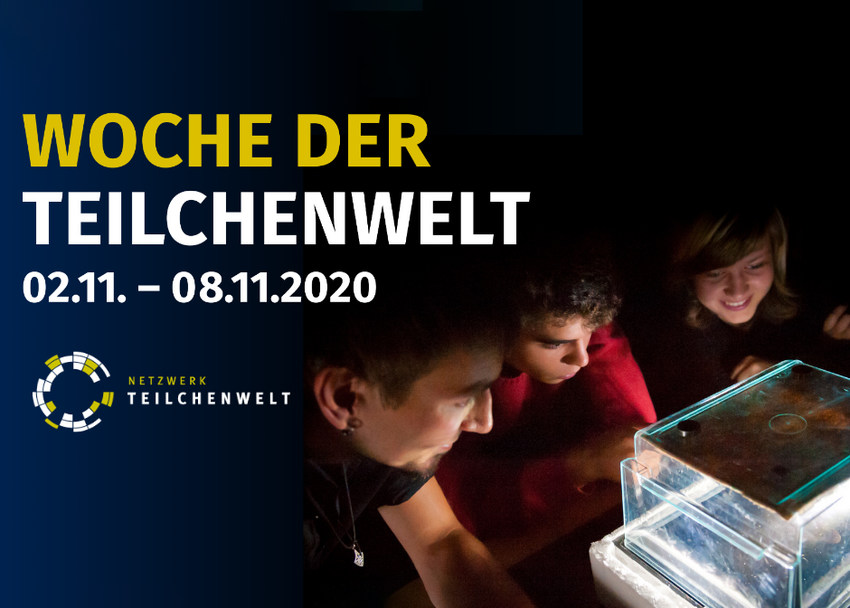The Max Planck Institute for Physics is participating in the Week of the Particle World with the following events:
3 November 2020, 7:00 – 8:00 p.m.
Coffee and cosmos: Small but not insignificant – with crystals in search of dark matter with Johannes Rothe
More information and registration https://www.mpp.mpg.de/aktuelles/meldungen/detail/klein-aber-fein-mit-kristallen-auf-der-suche-nach-dunkler-materie/
4 November 2020, 7:00 p.m. – 8:30 p.m.
Science Snacks - Particle Physics Show of the University of Bonn
Juliane van Scherpenberg reports on how fascinating objects in the universe can be observed with telescopes on La Palma – and what her daily work at the observatory looks like.
5 November 2020, 9:30 a.m. – 1:15 p.m.
Masterclass for students and teachers: Research with the Belle II experiment
How is it that there is more matter than antimatter in the universe? With the Belle II experiment in Japan, which started in 2019, scientists are trying to solve this riddle.
More information and registration: https://indico.mpp.mpg.de/e/Belle2
6 November 2020, 9:30 a.m. – 13:15 p.m.
Masterclass for students and teachers: Gamma astronomy with the MAGIC and LST-1 telescopes
Gamma rays give astrophysicists a completely different view of celestial objects than optical light. They provide information about processes in the universe that occur at the very highest energies – such as black holes or remnants of supernova.
More information and registration: https://indico.mpp.mpg.de/e/MAGIC-LST
Netzwerk Teilchenwelt celebrates its 10th birthday
In 2010, 30 science locations, including the MPI for Physics, joined forces to form the Particle World Network. To mark the tenth anniversary, the scientists of the participating research institutions are bundling a particularly large number of events and presenting the entire spectrum of research – from Higgs bosons and neutrinos to black holes and supernovae as gigantic particle accelerators.
About 200 researchers are active in the Particle World Network. They have set out to infect students and teachers alike with their enthusiasm for particle physics and to get them excited about STEM subjects. To this end, they offer project days in schools, student laboratories, or museums throughout the year. The students can spend a day as particle physicists and evaluate real data from CERN, track down particles from outer space, or discuss the origins and structure of the universe with scientists. Workshops and project weeks for particularly interested students are held at CERN in Geneva as well as various research facilities in Germany.
The Week of the Particle World is part of the anniversary program of the German Physical Society (DPG). The world’s largest physics society is the patron of Particle World Network. This year, it is celebrating its 175th anniversary. The Week of the Particle World is supported by the Wilhelm and Else Heraeus Foundation.
You can find the calendar of events under www.wochederteilchenwelt.de
The “Particle World Network” is funded by the Federal Ministry of Education and Research (BMBF) within the framework of the KONTAKT project, which promotes communication, the recruitment of young scientists, and the participation of the general public in knowledge of the smallest particles. The project leader is located at the Technical University of Dresden.
